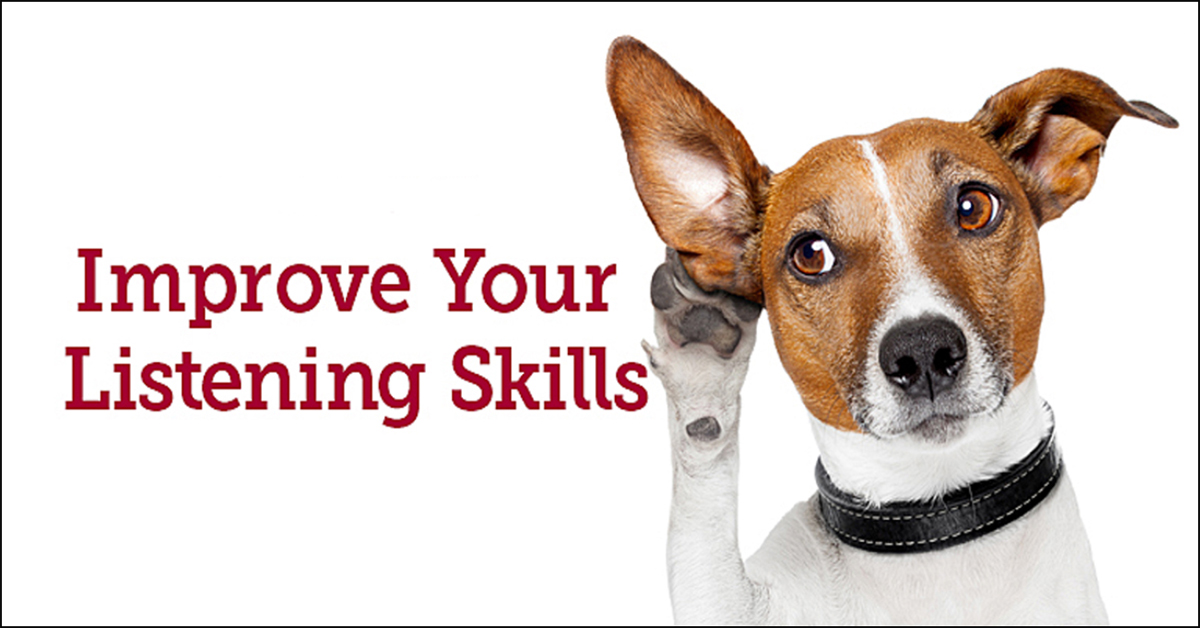Listening can be difficult, but it is not that complex. The difficulty lies more in our motivation and assumptions. The nuts and bolts are few, and assembly is much simpler than putting together a flatpack bookshelf. Here are some tips to follow if you want to become a better listener.
1. Give signals that you are listening
Your signals (or lack thereof) help or hinder the speaker’s own efforts to articulate. Use that face of yours. Look the speaker in the eye. Nod your head. Smile, frown, laugh, groan¬ – whatever the remarks call for. Only by your signals does the speaker know that you are listening and the effects his words are having on you. I know of a person who gives full attention to whoever is speaking with him, but he listens with a stone face. The unintended effect is that he unnerves the speaker, which then hinders that speaker’s ability to articulate. A good listener signals that he indeed is listening.
2. Ask pertinent questions
The speaker has in her mind her argument or her description, and she typically speaks as though you know the information she is leaving out. Ask for details. When she says, “they,” clarify who “they” are. Let Sergeant Friday be your inspiration. The speaker doesn’t have to give just the facts, but the simplest facts are what often give clarity. Pertinent questions keep the speaker and you on track. They also signify to the speaker that you are truly listening.
3. Don’t interrupt
Don’t interrupt with extraneous comments and questions. It does not matter that you like the chicken salad at the café where the speaker had his embarrassing incident. Don’t give into the temptation to complete the speaker’s sentence. This is not a quiz contest. Let the speaker complete his thought, however long and excruciating it is for him to find his words. The only time to interrupt is when he goes off on his own extraneous rabbit trail. Then you need to bring him back to the point at hand.
4. Restate what you have heard
Once she has finished her thoughts, then is the time to restate what you have heard her saying. This accomplishes two objectives. One, it clarifies for both of you if you heard the speaker correctly. Two, it clarifies for her whether she herself understands clearly what she has been saying. Much of the time, people will come with problems (and supposed solutions) that, once they have articulated the matter at loud, and especially if the hearer restates what they have said, they have clearer understanding of whatever the issue is. Speaking out loud is a way that they are able to think with clarity.
That’s about it. There could be more to write and to illustrate, but these few basic practices will pave the way for effective listening. The operating word for listening well is to be attentive. Be attentive to what is being said; more to the point, be attentive to the person speaking. The tips above are simply common sense practices that we naturally follow when we are attentive to people. The personal problem weighing on your mind; the irritating manner about the speaker; the interesting matter at hand that has your attention – you must put these distractions aside. Perhaps you need to ask the speaker to wait; perhaps you need to inwardly refocus – whatever the case, good listening requires full attention to the speaker as a person and to the matter being brought up.
Follow these simple tips as you give full attention to your speaker. You will often find that problems are solved more easily, even at times being solved by themselves. You will find that you are able to lead otherwise difficult people. Feeling that they have been heard is the most powerful factor in winning them over to you, even if they continue to disagree with you. One of the greatest compliments you can give another person is to truly listen to them.

